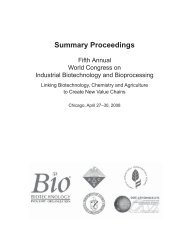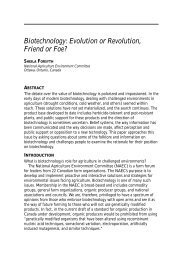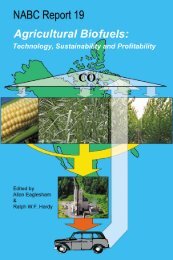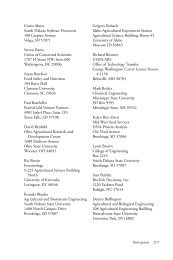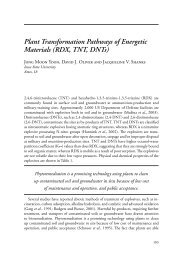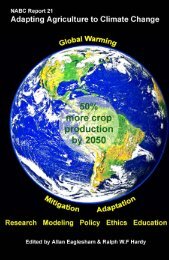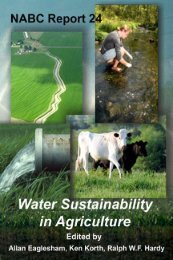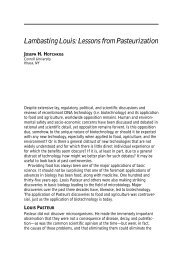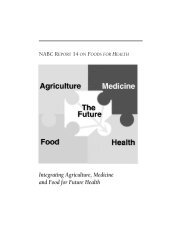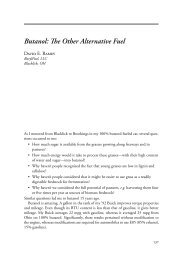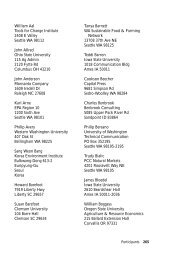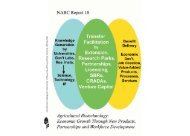Food Security - National Agricultural Biotechnology Council ...
Food Security - National Agricultural Biotechnology Council ...
Food Security - National Agricultural Biotechnology Council ...
- No tags were found...
You also want an ePaper? Increase the reach of your titles
YUMPU automatically turns print PDFs into web optimized ePapers that Google loves.
my farmer friends thought I was crazy when I said farming was relaxing, but it was truein comparison with some of the things that went on in the capital city.After a few years, someone asked me what was the biggest surprise that I had encounteredas commissioner of agriculture. After a brief moment’s thought, I said, “The amountof focus and time spent on the issue of food security. Not that we don’t have a safe foodsupply in this country, it’s just that the food-distribution system has changed over thelast few years.” In the fairly recent past, we had a system in which crops were raised,processed and consumed within a relatively small geographical area. Through consolidation,the integration of the food-processing systems, farms getting larger and changingdistribution methods, now we have a system whereby food may be grown in one area,transported somewhere else for processing, and then within a day or two distributed allover the country or, in some cases, internationally—all from one location. This meansthat although efficiencies of scale may accrue, when things go wrong they can go reallywrong, and certainly we have seen that occur.The other thing that has happened is that science has gotten much better. In times pastwhen people became ill, they seldom knew the cause. They went to the family picnic andhad Aunt Emma’s potato salad, and afterwards a dozen relatives became sick and concluded,“Something must have been going around.” Well, it was Aunt Emma’s potato salad. Withmodern scientific techniques, E. coli, salmonella and other microorganisms—which,before, the general public had never heard of—may now be identified. Paraphrasing acomment by Senator Amy Klobuchar a couple of years ago when she introduced legislationto address food-safety issues at the <strong>Food</strong> and Drug Administration:It’s a shame that the nation should have to wait until somebody in Minnesota getssick or dies before there is the opportunity to address a national food-safety issue.For those from Minnesota, please understand that we are not saying this with great pride,but we have done some things that are worth sharing. With reference to food security,our first premise is to keep everything safe. We have regulations in place to ensure thatproducts are moved from the farm to the consumer as safely as possible. The MinnesotaDepartment of Agriculture is a regulatory agency and a promotional agency. While wespend part of our time promoting agriculture, we are also in the business of regulating,which includes food safety. We look at environmental issues, including pesticides andherbicides.Team DYou have to be prepared for when something goes wrong, because, for sure, it will. In theMinnesota model, when something goes wrong vis-à-vis food safety, we have a centralreporting system. If a general practitioner or doctor at a hospital sees people with similarsymptoms they report it to the Minnesota Department of Health. Records are made andif a pattern appears, they engage what is sometimes referred to as Team Diarrhea. “TeamD” is a group of graduate students working at the university in public health, who takethe information and make phone calls to attempt to determine:228 <strong>Food</strong> <strong>Security</strong>: The Intersection of Sustainability, Safety and Defense



